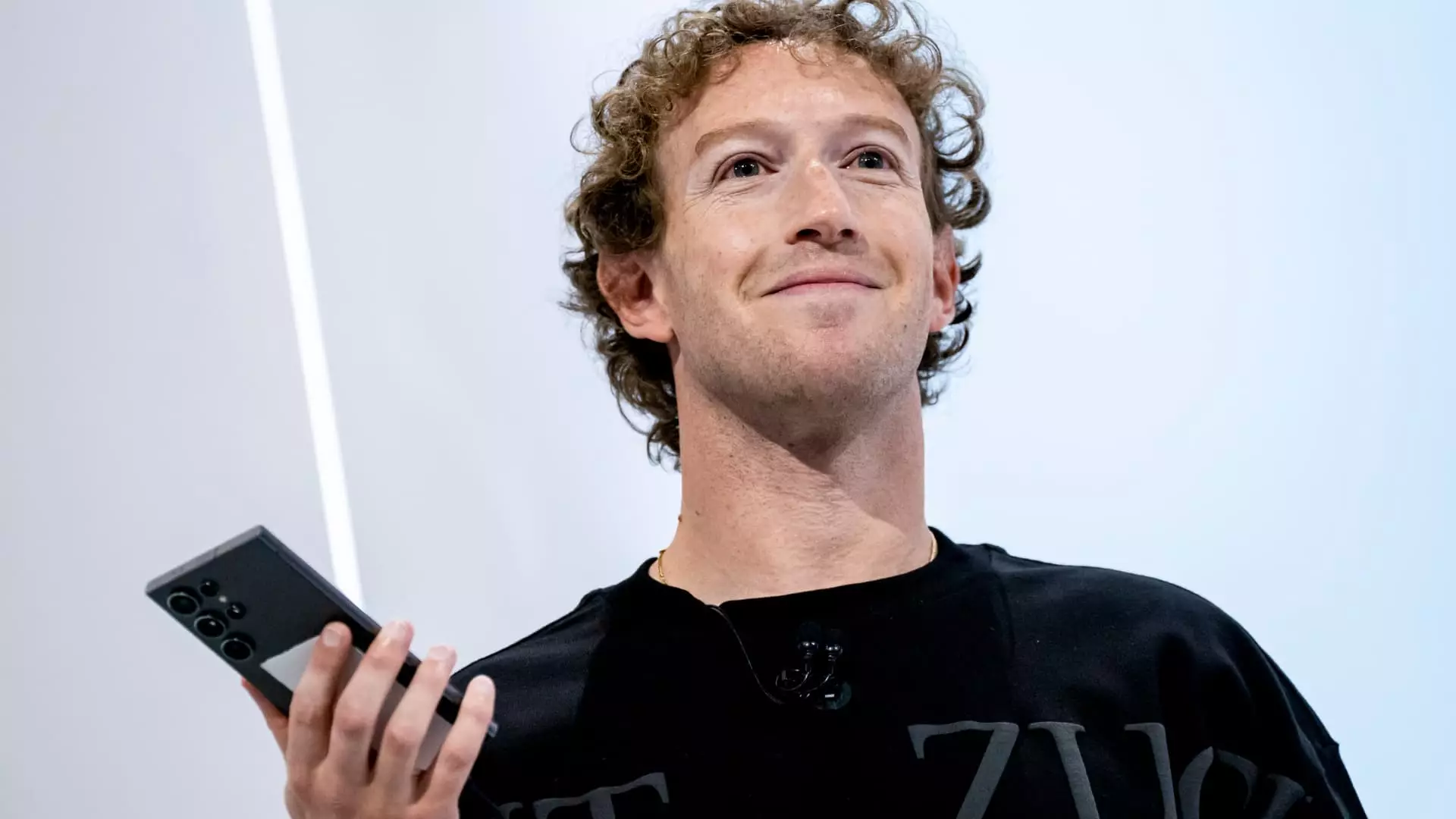In the competitive landscape of technology, the rivalry between companies like Meta and Apple is as palpable as ever. During a recent episode of the “Joe Rogan Experience,” Meta’s CEO Mark Zuckerberg delivered a scathing critique of Apple, focusing on its innovation stagnation and what he termed “random rules.” This commentary opens a broader discussion on the implications of corporate strategies and the future of technology’s most prominent players.
Zuckerberg acknowledged the profound impact that the iPhone has had on global connectivity. “On the one hand, [the iPhone has] been great, because now pretty much everyone in the world has a phone,” he remarked. This statement underscores the positive effects of Apple’s innovations—transforming communication, enabling applications, and fostering a culture where digital interaction is integral to daily life. However, his praise quickly turned into criticism. He emphasized that Apple’s strategy has morphed into one that simply maintains its existing products rather than pioneering new advancements. By asserting that “they haven’t really invented anything great in a while,” Zuckerberg spots a significant flaw: stagnation in innovation may not only hinder Apple but could set a negative precedent for the tech industry as a whole.
According to Zuckerberg, the slowing sales of iPhones can be attributed to incremental upgrades, which fail to excite consumers. If users perceive new models as minor updates rather than revolutionary changes, they may be less inclined to invest in the latest technology. “So how are they making more money as a company?” he questioned, suggesting that Apple’s current strategy revolves around monetizing its ecosystem through a 30% tax on developers rather than innovation. The irony is palpable: while Apple reaps profits from a loyal customer base, the long-term implications of this strategy could jeopardize the brand’s reputation as an industry leader.
Zuckerberg’s comments aimed squarely at Apple’s practices regarding peripheral device compatibility reveal a significant barrier to competition. He argues that Apple has created an environment where its users are essentially forced to purchase Apple products to achieve seamless integration. Critics may view this as a monopolistic approach to market control. “They’ve just thoroughly hamstrung the ability for anyone else to build something that can connect to the iPhone in the same way,” he asserted. In an age where innovation thrives on collaboration, these tactics could stymie enthusiasm from developers who seek to create diverse solutions.
Privacy vs. Accessibility: A False Dichotomy?
Apple often defends its restrictive practices by citing consumer privacy and security as paramount concerns. Zuckerberg, however, contends that these self-imposed protocols actually hinder broader accessibility. “It’s insecure because you didn’t build any security into it,” he criticized, suggesting that the lack of foundational security measures is used as a pretext for limiting external access. His assertion raises questions about the balance tech companies must strike between security and competition. Is it possible for Apple to be both a strong protector of user privacy and an enabler of external developers? This dual challenge complicates the narrative surrounding corporate ethics in technology.
Turning his attention to the realm of virtual reality, Zuckerberg commented on Apple’s recently launched Vision Pro headset. While he acknowledged that the headset represented an ambitious attempt at innovation, he also candidly noted that the execution fell short. “The V1, it definitely did not hit it out of the park.” This critique mirrors his earlier statements regarding innovation, underscoring the importance of not only making bold attempts but also ensuring those attempts resonate with the market.
Zuckerberg’s remarks paint a picture of a tech landscape that desperately requires reinvention and more open competition. In highlighting Apple’s lack of groundbreaking innovation, restrictive practices, and inadequate strategies surrounding security, he calls attention to a critical moment in tech history. As we stand at the crossroads of digital transformation, the challenge lies not only in outpacing rivals but in fostering an environment where innovation and consumer satisfaction mutually thrive. The future success of firms like Apple and Meta hinges on their ability to adapt, evolve, and inspire trust among consumers and developers alike.

